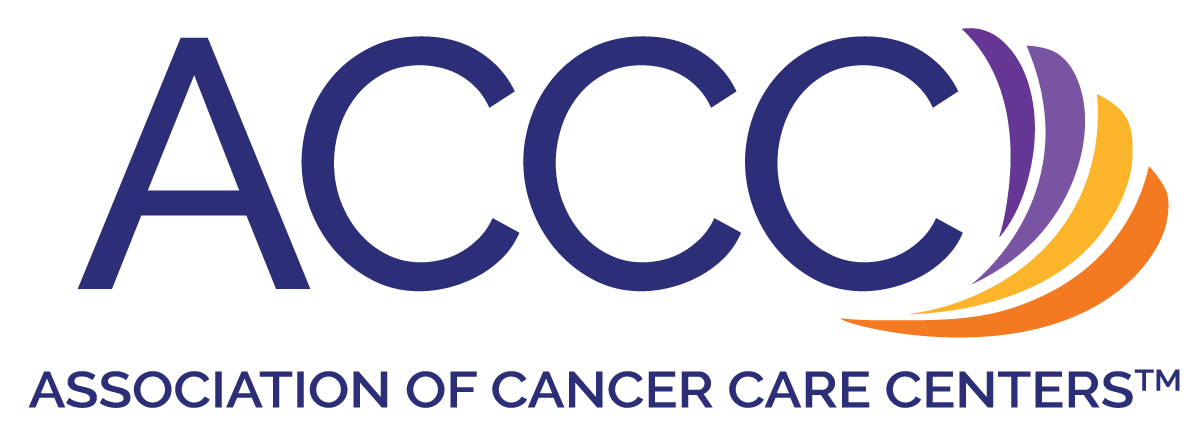
ACCC Hosts Online Expert Panel: Palliative Care in Oncology: Challenges and Opportunities

Key Takeaways
- Palliative care is crucial for improving cancer patients' quality of life, yet disparities in access persist, particularly among minoritized groups.
- Empowering clinicians to discuss palliative care with patients is essential for improving understanding and access to these services.
Rockville, MD – The Association of Cancer Care Centers (ACCC) this week hosted an
ACCC president Nadine Barrett, PhD, MA, MS, FACCC, senior associate dean for Community Engagement and Equity in Research at Wake Forest University School of Medicine and Atrium Health, convened a panel of practicing experts in palliative care for this online discussion, which focused on 3 principal areas:
- The critical role palliative care plays in improving the quality of life for patients with cancer.
- Identification of where disparities in care exist.
- Practical solutions to improve equitable access to palliative care services for all.
Kimberly Johnson, MD, MHS, Geriatric Medicine Specialist and Professor in the Department of Medicine, Division of Geriatrics at Duke Palliative Care, took part in the online panel. Dr. Johnson's research focuses on understanding and eliminating racial disparities in palliative and end-of-life care for Black patients and their families.
“We have seen tremendous growth in the field of palliative care in what has really been a reasonably short period of time. We’ve seen the availability of specialist palliative care services popping up in the vast majority of large hospitals, and still there are places where people don't have access to those services, so I do think that there are huge opportunities for us to do better,” said Dr. Johnson.
She added, “Palliative care in its reach of underserved populations, particularly minoritized racial and ethnic groups, is really not very different from anything else in our continuum of health care. We see the same kinds of disparities that we see starting from birth all the way to the end of life.”
Dr. Ramona Rhodes, MD, MPH, MSCS, Associate Professor of Internal Medicine in the Division of Geriatric Medicine at UT Southwestern Medical Center, also participated on the panel.
“We must empower clinicians to talk about palliative care. First, to be knowledgeable about it, and then to talk with patients, and be comfortable talking with patients about palliative care in such a way that they emphasize the importance of palliative care and making sure that patients and families understand what palliative care is,” said Dr. Rhodes. “I think that the responsibility is ours.”
Dr. Declan Walsh, MD, chair of the Department of Supportive Oncology at Atrium Health Levine Cancer, was the third participant in the November 12 expert panel. Dr. Walsh developed the first palliative care program in the United States.
“One of the things I think it's important for hospitals, cancer centers, health care systems, and other medical care entities to realize is that they need to make palliative care a priority—an organizational priority, number one. And then number two, that the commitment to that type of prioritization requires a certain investment to achieve a particular standard of care,” said Dr. Walsh.
“It's not enough to have a physician, we need others on the interdisciplinary team, such as chaplains, social workers, and so on. Making that commitment to achieving the highest possible standards and internationally recognized standards for interdisciplinary care must be part of the commitment [to quality palliative care.”
“The ultimate goal is to build capacity and maximize impact as we move forward and work together to care for our patients, particularly around challenges and opportunities to improve the delivery of palliative care to patients with cancer,” said Dr. Barrett.
ACCC has resources for cancer care professionals available now. A newly released handbook to guide the equitable delivery of oncology supportive care services can be downloaded at
About ACCC
The Association of Cancer Care Centers (ACCC) provides education and advocacy for the cancer care community. Founded in 1974, ACCC is a powerful network of more than 45,000 multidisciplinary professionals from over 1,700 provider organizations nationwide. As advances in cancer screening and diagnosis, treatment options, and care delivery models continue to evolve—so has ACCC—adapting its resources to meet the changing needs of the entire oncology care team.
Newsletter
Stay informed on drug updates, treatment guidelines, and pharmacy practice trends—subscribe to Pharmacy Times for weekly clinical insights.





















